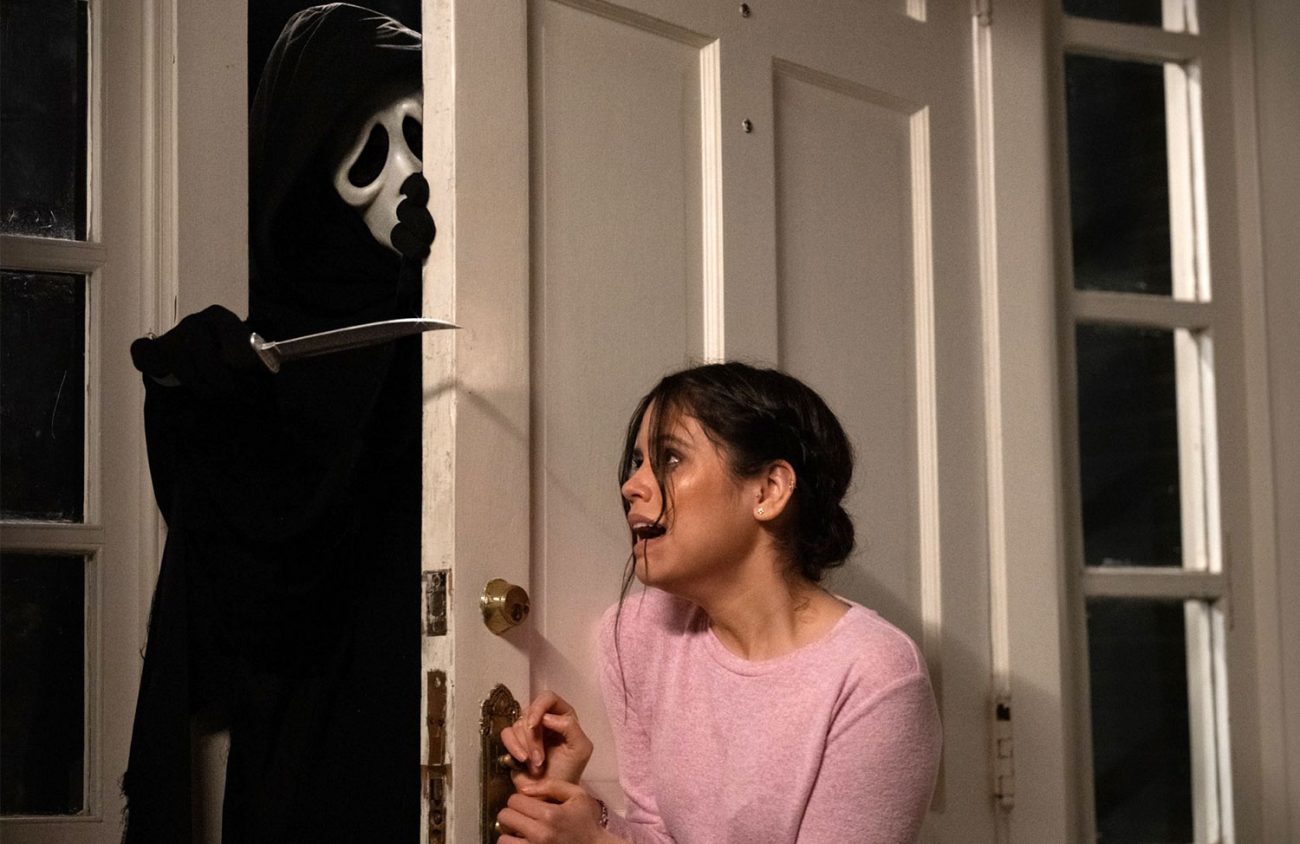As a lifelong lover of movies, I’ve been blessed to experience now and again what I can only describe as a divine convergence — that rare moment when the movie I’m watching aligns so immaculately with my state of mind that the whole thing takes on an almost mystical relevance, forever cementing itself in memory. The movie doesn’t have to be a masterpiece; it simply has to hit my receptors just so.
Oddly enough, the original Scream was just such a flick. I remember it like it was yesterday: It was the winter of 1996. I bought tickets to a matinee, and walked into a Seattle theater that was empty but for a small group of kids obviously playing hooky. As the opening scene with Drew Barrymore unfolded, the kids started talking tough: “Dumb bitch, don’t answer that phone!” “Oh, man, you gonna get it!” “This is stupid!”
By the end of the scene, they’d fallen dead silent. One of the kids leaned toward his friend and whispered abjectly: “Dude, this is really scary.”
Yes, it was. And so much more.
Half a century later, the revolutionary impact that director Wes Craven (who died in 2015) and his screenwriter Kevin Williamson had on the horror genre is indisputable. With its ironic distancing, hyper-awareness of its own stalest devices and winking millennial nihilism, Scream gave horror movies a postmodern razzing while simultaneously humanizing them. Never again could the victims in slasher flicks merely be screaming, clueless puppets running up the stairs when they should be running out the front door. Scream forced scary movies to get smarter.
In a sense, the new (and, tellingly, unnumbered) Scream brings the Craven/Williamson revolution to an end. The fifth installment in the franchise, and the first in a decade, the film is the cinematic equivalent of a Rube Goldberg device: an elaborate contraption in which the only expectation is misdirection, and the meta of it all has metastasized into an inert metaphysics that, by now, seems more compulsory than compelling. The idea that the movie, and the fictitious Stab movie inside the movie, is a “requel” (a reboot-slash-sequel) is clever, but it also serves to highlight the exhaustion at the core of the franchise.
It’s not all bad. Directors Matt Bettinelli-Olpin and Tyler Gillett (Ready or Not) are more than competent in hitting all their marks, technically and aesthetically. The screenwriters, James Vanderbilt and Guy Busick, create a relatively credible and faithfully clever plot, tying in a slew of new characters (played by Melissa Barrera, Jenna Ortega, Dylan Minnette and others) with surviving characters from the original cast (Courtney Cox, David Arquette and Neve Campbell). Outwardly, it looks and sounds and moves and murders like a Scream movie.
And I can’t remember hardly a damn thing about it, except that the third act started to pick up, to reveal some of that sociopathic élan and joyously homicidal chaos and comedy that so distinguished the first movie. Ironically, that’s when both Cox and Campbell step significantly into the proceedings.
What’s missing, then, from this new one is the very thing I treasured in the old Scream: a sense of discovery, not of just who the killer is but of what the killer is.
In the original, Ghostface was nearly as vulnerable and fallible as his victims; from under the black robe peeked the jeans and ratty boots of a teenager, which made it all the more creepy. Everybody has commented on the “meta” aspect of the Scream franchise, but what people forget is that the original also had a disarming and very human gravitas about it — a lurking sense that the slasher(s), like his or her or their victims, was making this up as he or she or they went, and it might go haywire at any moment. Despite the heady cheekiness of the script, the stakes still felt high, and the atmosphere was dark and tense.
That sense — of randomness, of awkwardness, of vulnerability across the board — is missing from the new Scream, and it seems (as with so many old slasher flicks) that it’s a case of putting the cart before the horse: fitting stereotypical characters into a pre-made machinery bent on destruction. Scream, in a sense, is not a requel but a simulacrum — a diminishing echo of a scream whose source has all but disappeared.
Scream is playing at the Broadway Metro and Regal Valley River Center.
